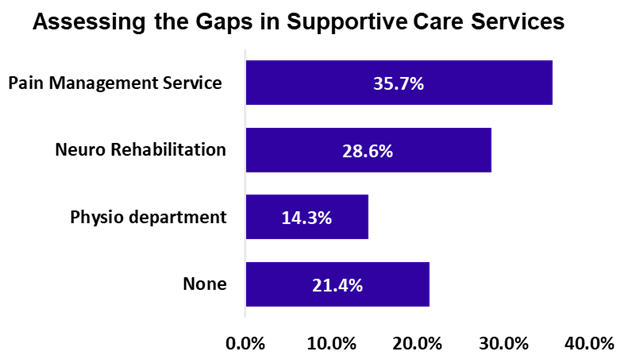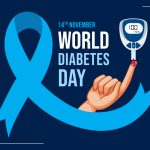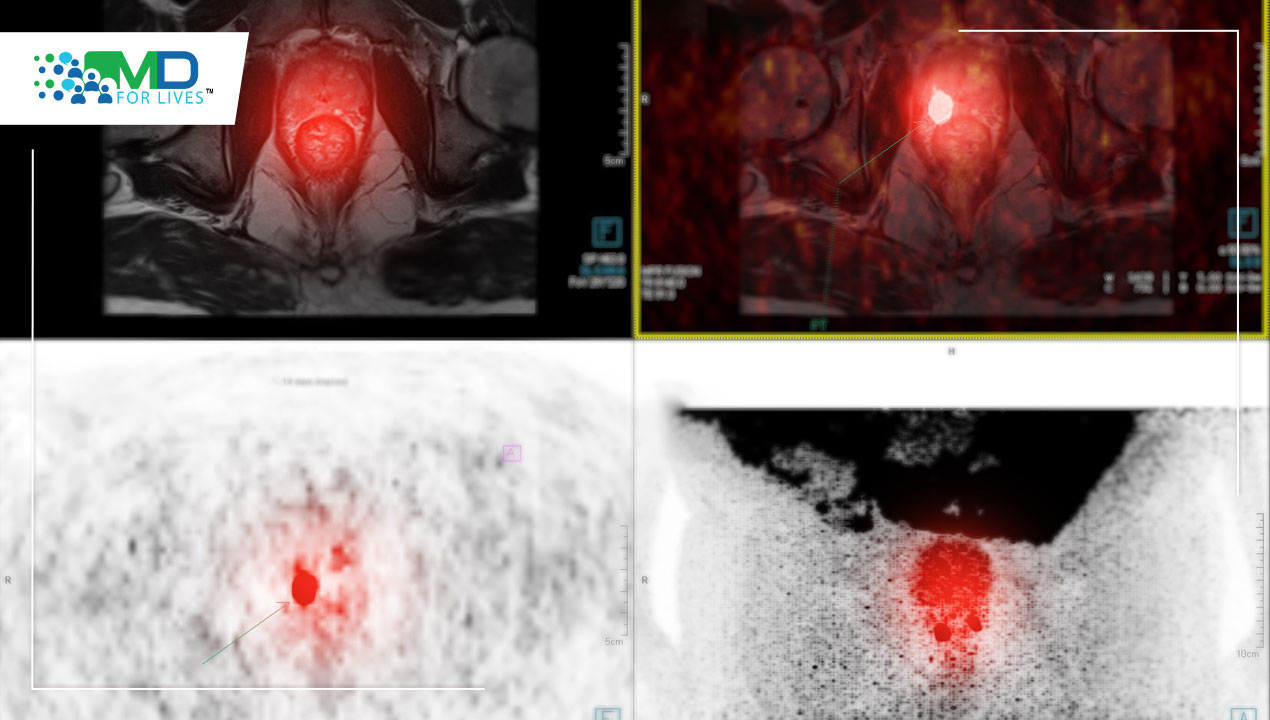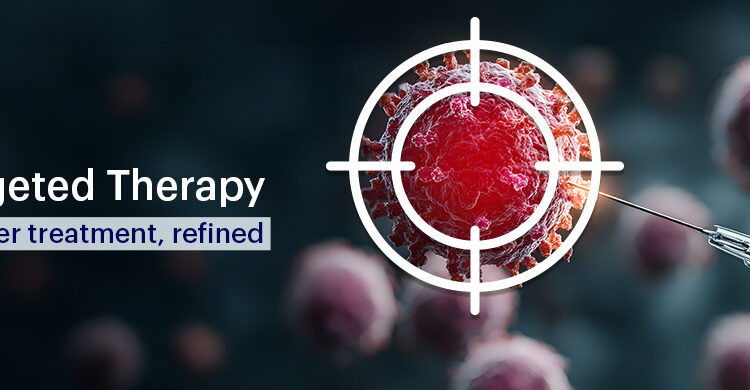Cancer care has evolved in leaps and bounds, with groundbreaking treatments and therapies putting up a strong fight against cancer. While the primary goal has always been to conquer the disease, there’s a growing understanding of the crucial role that supportive care plays in improving the overall quality of life for cancer patients during and post treatment. In fact, a recent survey conducted by MDForLives has revealed that an overwhelming 91% of oncologists believe supportive care is an essential part of cancer treatment, emphasizing its importance in providing comprehensive care for patients. However, it’s equally important to acknowledge that 36% of the respondents have identified pain management services as an area where further improvement is needed, highlighting a critical aspect of the field that deserves more attention.
Delve deeper into the study ‘Oncologist Insights on Access and Availability of Supportive Care’, a recent survey conducted by MDForLives to unravel the crux of today’s cancer care!
Supportive Care: A Holistic Approach to Cancer Treatment
As mentioned in the beginning of the blog, a substantial consensus among oncologists highlights the crucial role of supportive care as an “indispensable component” of cancer treatment. This resounding affirmation highlights the profound impact of supportive care on patients’ quality of life, propelling it to the forefront of modern oncology as an integral component of comprehensive cancer management.

Supportive care in oncology is a comprehensive approach aimed at improving the overall well-being of cancer patients. It addresses the physical, emotional and psychological aspects of care to enhance their quality of life. The primary goal of supportive care is to manage the side effects of cancer treatment, alleviate pain through various pain management techniques and improve a patient’s overall experience throughout their cancer journey.
Here are the four principles of supportive care as suggested by the Multinational Association of Supportive Care in Cancer:
Principle 1: Supportive care is designed to enhance the quality of life for cancer patients by maximizing their ability to benefit from their cancer treatment.
Principle 2: Supportive care is a continuous and comprehensive approach that addresses the physical, emotional and social needs of cancer patients throughout their entire journey, from diagnosis to survivorship and beyond.
Principle 3: Supportive care is a tailored and personalized approach that revolves around the individual’s unique needs and preferences, ensuring their well-being and empowering them to thrive throughout their cancer journey.
Principle 4: Supportive care is an essential and fundamental right for every cancer patient, regardless of their individual circumstances or the stage of their cancer. It should be readily accessible and integrated into all cancer care facilities.
Unveiling the Spectrum of Supportive Care for Cancer Patients

This recent survey also revealed that a variety of supportive care services are available to cancer patients, with nutritional counseling (25%) being the most widely offered, followed by emotional and psychological support (18.8%), palliative care (18.8%), acute pain management techniques (12.5%), symptom management (12.5%), social work services (6.3%) and rehabilitation (6.3%).
These services play a crucial role in helping patients manage the physical, emotional and social challenges associated with cancer, ensuring their well-being and empowering them to navigate the cancer journey effectively.
Challenges Faced by Oncologists in Supportive Care Services
While oncologists worldwide face numerous obstacles in providing effective supportive care, one challenge stands out as particularly crucial.

30% of respondents (oncologists) have identified insurance coverage and affordability as significant challenges that hinder their ability to provide comprehensive supportive care services to their patients.
The limitations of insurance coverage often force oncologists to prioritize cancer treatment over supportive care, despite the latter’s crucial role in managing the physical, emotional and social challenges associated with cancer. This situation leaves patients struggling to obtain essential services such as – pain management services, nutritional counseling and emotional support, further exacerbating their suffering and limiting their ability to fully engage in their treatment journeys.
Pain Management Services – The Crucial Practice Gap
Additionally, our survey on – ‘Oncologist Insights on Access and Availability of Supportive Care’ has sent shockwaves through the medical community, revealing a shocking reality! 36% of respondents identified pain management techniques or services as a gaping hole in supportive care. This startling finding exposes a critical oversight in patient care that must be urgently addressed.

Pain management is not a mere afterthought; it’s the lifeline that empowers cancer patients to navigate their treatment journeys with unwavering determination and resilience. Effective pain management ensures that they can focus on healing and recovery without being shackled by agonizing discomfort.
Our survey results shattered the notion that pain management is a secondary concern. Instead, it highlights the fact that specialized pain management services should be woven seamlessly with supportive care. This paradigm shift reflects the understanding that pain management is not a mere add-on but an indispensable cornerstone of holistic cancer care.
By prioritizing effective acute pain management techniques, we can transform the lives of several cancer patients, alleviating their physical suffering, restoring their emotional well-being and empowering them to embrace their journeys with renewed vigor and hope.
It’s time we bridge this critical gap by raising our voices for pain clinic requirements and ensuring that every cancer patient receives the comprehensive pain management they deserve.
Conclusion – Prioritize Pain Management in Cancer Supportive Care

Pain is not just an unpleasant side effect; it can hinder a cancer patient’s ability to fully engage in their treatment journey, impacting their overall well-being and quality of life. Moving forward, we must champion the cause of accessible and effective pain management for cancer patients. By bridging the gap in pain management services and integrating them seamlessly into supportive care, we can empower patients to navigate their cancer journey with renewed strength and resilience.
Oncologists reading this blog are invited to contribute to the advancement of cancer treatment by participating in MDForLives’ paid medical surveys, providing valuable insights in our discussion forums, and sharing expertise through the submission of blogs and case studies. In appreciation of your contributions, attractive rewards await you!
Your insights are priceless in shaping the future of cancer treatment and influencing healthcare on a broader scale.
Reference:
- Oncology, MDFL Survey Data
- Supportive Care: The “Keystone” of Modern Oncology Practice
Source: ncbi.nlm.nih.gov

MDForLives is a global healthcare intelligence platform where real-world perspectives are transformed into validated insights. We bring together diverse healthcare experiences to discover, share, and shape the future of healthcare through data-backed understanding.






